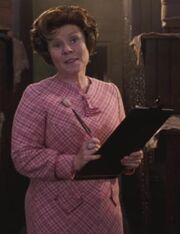Tense(กาล)
หมายถึง รูปแบบของคำกริยาอันบ่งบอกถึงเวลาของการกระทำนั้นแบ่งเป็น 3 ประเภทใหญ่ด้วยกันคือ
1 Present Tense
2 Past Tense
3 Future Tense
โดยแต่ละประเภท สามารถแบ่งเป็นประเภทย่อยได้อีก 4 ประเภท คือ Simple Progressive Perfect progressive และ Perfect แต่ละ Tense จะมีรูปแบบคำกริยาและการใช้ที่แตกต่างกัน ดังกล่าวถึงต่อไป
Simple Present Tense มีรูปแบบคำกริยาคือ Subj. + V1 (ถ้าประธานเป็นเอกพจน์ V1ต้องเติม S หรือ es) หลักการใช้ Simple Present Tense
1 ใช้กับเหตุการณ์ที่กระทำซ้ำๆ เป็นประเพณีหรือนิสัย มักจะมีคำเหล่านี้ประกอบเช่น always sometimes often everyday usually frequently ยกตัวอย่างเช่น He visits his grandparents every Sunday.
Ted goes to bed at nine o’clock every night.
2 ใช้กับเหตุการณ์ที่เป็นจริงเสมอ เช่น The moon goes round the earth.
Water boils at 100 degree celcius.
3 ใช้กับสุภาษิต คำพังเพยต่างๆ เช่น Time and tide waits for no man.
An empty vessel gives most noise.
4 ใช้กับเหตุการณ์ที่กำลังจะเกิดในอนาคต มีกำหนดเวลาแน่นอน เช่น Wilby comes back from London tonight at half past ten.
I take the exam next Monday.
5 ใช่บ่งบอกความหมายอนาคตในอนุประโยคที่ขึ้นต้นด้วย When As soon as Before After If Unless In case เช่น We shall go to the park as soon as the rain stops.
I will take the camera with me in case I meet my old friends.
6 ใช้ในประโยคอุทาน เช่น Here comes my naughty child!
There goes my bicycle!
7 ใช้ในการเล่าเรื่องราวในอดีตเพื่อมห้เกิดความตื่นเต้นราวกับเกิดขึ้นในปัจจุบัน เช่น King Arthur loves Guinevere very much but Lancelot takes her away from him.
Simple Past Tense
มี2 รูปแบบคำกริยา คือ Subj.+V2 หลักการใช้ Simple Past Tense
1ใช้กับเรื่องราวในอดีตที่จบลงไปแล้ว มักจะมีคำบ่งบอกเวลาในอดีตกำกับ เช่น Yesterday Last night Formerly In the past Ago Just now Once In the old days ยกตัวอย่างเช่น Tim once lived in New Zealand before moving to the US.
James went to the theatre last night.
2 ใช้กับเหตุการณ์ที่เคยทำเป็นนิสัยในอดีต แต่ปัจจุบันไม่ทำอีกต่อไป โดยใช้โครงสร้าง used to+ inf. ยกตัวอย่างเช่น He used to smoke seven cigarettes a day.
In the old days people used to travel on foot.
3 ใช้หลังสำนวน I would rather It’s time It’s high time It’s about time เช่น I would rather you went home early.
It’s high time we stopped our party.
Simple Futher Tense มีรูปแบบคำกริยาคือ Subj.+will/shall+V1 หลักการใช้ Simple Futher Tense
1 ใช้กับเหตุการณ์ที่เกิดขึ้นในอนาคต มักจะมีคำบ่งบอกเวลาอนาคตกำกับ เช่น Tomorrow Next month Soon In the future In a short time ยกตัวอย่างเช่น We will finish this chapter next Monday.
The class will begin soon.
2 ใช้ในความหมายเชิงอนุญาตหรือขอร้อง เช่น Shall I go home now?
Will you help me with these books?
3 ใช้แสดงความตั้งใจ เช่น I will go to school as so on as the snow stops.
Ericwillexplain the whole once he gets home.
บุปผาพิรุณโปรยปรายสอนภาษาอังกฤษ
|
| บุปผๅพิรุณโปรEปราE |
#1 บุปผๅพิรุณโปรEปราE [ 17-02-2016 - 23:08:27 ] |
|
|
| บุปผๅพิรุณโปรEปราE |
#2 บุปผๅพิรุณโปรEปราE [ 19-02-2016 - 21:20:35 ] |
|
|
 |
| บุปผๅพิรุณโปรEปราE |
#3 บุปผๅพิรุณโปรEปราE [ 19-02-2016 - 21:21:05 ] |
|
|
Present Perfect Tense มีรูปแบบคำกริยาดังนี้ Subj. + has/have + V3 หลักการใช้ Present Perfect Tense 1 ใช้กับเหตุการณ์ที่เกิดขึ้นในอดีตแบะยังดำเนินหรือมีผลต่อเนื่องมาถึงปัจจุบัน มักจะใช้กับ since หรือ for - ใช้ since กับจุดของเวลาหรืออนุประโยคที่บ่งบอกคึงเวลาในอดีตซึ่งใช้ Simple Past Tense เช่น Alice has started her job since 1990. - He has lived since he was born. - แต่ให้ใช้ Present Simple Tenseในประโยคหลักในกรณีที่เกี่ยวกับเวลา เช่น - It is five years since I met her. - It seems a long time since our last meeting. - - ใช้ for กับช่วงเวลาเช่น - Bernard has joined the club for three years. - Chris has written that report for two weeks. - นอกจาก since หรือ for แล้ว Present Perfect Tense ยังใช้กับคำบ่งบอกเวลาดังต่อไปนี้ Just Yet Already Recently Lately Never Ever So far Up to now Up to the present time Over and Over ยกตัวอย่างเช่น Don has changed his address recently. So far,anyone has come across any question? 2 ใช้กับเหตุการณ์ที่เพิ่งผ่านไป เช่น She has just crossed the road. I have just watered all the flowers. 3 ใช้ในความหมายว่าเคยหรือไม่เคย เช่น I have never seen that girl before. Have you ever loved anyone? 4 ใช้กับ yetหรือ already yet ใช้กับประโยคคำถามหรือปฏิเสธ มีความหมายว่า “หรือยัง” หรือ “ยังไม่” Have you done your homework yet? We have not studied Shakespeare yet. -already ใช้กับประโยคบอกเล่ามีความหมายว่า “เรียบร้อยแล้ว” Frank has already come back from his business trip. 5 ใช้กับเหตุการณ์ที่กระทำซ้ำๆมักมีคำว่า Many times Several times กำกับ เช่น I have been to Bangkok many times. |
|



